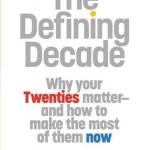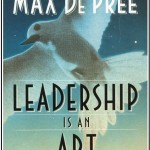“Self-esteem is the reputation we acquire with ourselves.”
Of all the judgments you make in life, none is as important as the one you make about yourself. The difference between low self-esteem and high self-esteem is the difference between passivity and action, between failure and success. Now, one of America’s foremost psychologists and a pioneer in self-esteem development offers a step-by-step guide to strengthening your sense of self-worth. Here are simple, straightforward and effective techniques that will dramatically improve the way you think and feel about yourself. You’ll learn:
- How to break free of negative self-concepts and self-defeating behavior.
- How to dissolve internal barriers to success in work and love.
- How to overcome anxiety, depression, guilt and anger.
- How to conquer the fear of intimacy and success.
- How to find — and keep — the courage to love yourself.
- And much more. [From: Barnesandnoble.com]
This new edition of the original text reveals how Nathaniel Branden’s landmark book broke the rules of conventional behavioral theory and promulgated his revolutionary ideas on the critical role that self-esteem plays in living a healthy, fulfilling life. The book offers an in-depth exploration of the need for self-esteem, the nature of that need, the conditions of fulfillment, and how self-esteem (or lack of it) affects our values, responses, and goals. Branden also debunks the misguided notion that self-esteem is a “feel-good phenomenon” and shows instead how self-esteem, rationality, perseverance, self-responsibility, and personal integrity are all intimately related. [From: Amazon.com]
“How do we keep our inner fire alive? Two things, at minimum, are needed: an ability to appreciate the positives in our life – and a commitment to action. Every day, it’s important to ask and answer these questions: ‘What’s good in my life?’ and ‘What needs to be done?”
From the day it was published, The Psychology of Self-Esteem was recognized as a groundbreaking book that shook the foundations of psychoanalysis. Dr. Branden’s philosophy broke radically with the mainstream thinking of the time and set a new course for our understanding of ourselves and our deepest natures.The brilliance of this benchmark work shines through today as brightly as when it was published, and its message continues to be of vital importance as we enter the twenty-first century. The Psychology of Self-Esteem redefines the relationship of reason to emotion, the nature of free will, and the powerful impact of self-esteem on motivation, work, friendship, sex, and romantic love. [From: Goodreads.com]
“Faith is the commitment of one’s consciousness to beliefs for which one has no sensory evidence or rational proof. When man rejects reason as his standard of judgement, only one alternative standard remains to him: his feelings. A mystic is a man who treats his feelings as tools of cognition. Faith is the equation of feelings with knowledge”
The book is divided into two parts. In Part One (“The Foundations”), Branden explains his views on human nature and the science of psychology. He discusses his theories about consciousness, volition, emotions (with particular attention to emotional repression) and mental health.
The material in Part One is about philosophical and psychological theory and does not focus on self-esteem, which is the predominant subject in Part Two (“The Psychology of Self-Esteem”). He describes self-esteem as “the integrated sum of self-confidence and self-respect”, which he describes respectively as “a sense of personal efficacy and a sense of personal worth.” Branden considers self-esteem to be one of the most important factors in human psychology.
Branden contrasts healthy self-esteem with conditions that he views as psychological problems. First is what he calls “pseudo-self-esteem,” which he describes as “an irrational pretense at self-value,” and “a nonrational, self-protective device to diminish anxiety and to provide a spurious sense of security”. Next he discusses pathological anxiety, which he traces to a lack of self-esteem, particularly a lack of self-confidence. He further connects this to feelings of guilt and depression, which he views as aspects of anxiety. The last problem he discusses is one he calls “social metaphysics”, which he describes as “the psychological syndrome that characterizes a person who holds the minds of other men, not objective reality, as his ultimate psycho-epistemological frame of reference.”
The final chapter discusses psychotherapy. Branden emphasizes the importance of moral values, stating that “there isno way for a psychotherapist to keep his own moral convictions out of his professional work.” He does not view this as a flaw, but rather argues that the therapist should guide patients towards values that will improve their self-esteem. “Effective psychotherapy requires a conscious, rational, scientific code of ethics”, says Branden, and he identifies that code as the Objectivist ethics of Ayn Rand. He then briefly discusses five different therapeutic techniques and wraps up the book with a concluding section.
The thirty-second anniversary edition adds a preface in which Branden explains that although his views have changed in some ways, he has chosen not to alter the original text. Instead he added an epilogue on “Working with Self-Esteem in Psychotherapy”. The epilogue updates his views on self-esteem, which have changed in some particulars since the book was first written. He also describes his more recent therapeutic methods, focusing on the use of sentence-completion exercises.
Background
The Psychology of Self-Esteem was largely written while Branden was associated with Rand. It was Branden’s first solo book, although he had previously written essays for two of Rand’s books and for Who Is Ayn Rand?, which he co-wrote with his then-wife Barbara Branden. Some of the material comes from Who Is Ayn Rand? and from articles he wrote for The Objectivist, a magazine he and Rand co-edited. Rand was Branden’s mentor and former lover, but in 1968 she had broken off all relations with him. In his memoirs, Branden recalled that important parts of the book were written during the “agonizing chaos” of the collapse of their relationship.
Rand had helped Branden obtain a contract with World Publishing, which was affiliated with her own publisher, and had offered to write an introduction for the book. When their relationship ended, she pressured the publisher to cancel his contract, which they did after he missed a deadline for delivering the completed manuscript. She also threatened to withhold the use of material that had been copyrighted by The Objectivist, although she took no legal action when Branden used the material anyway. [From: Wikipedia.com]
“There is overwhelming evidence that the higher the level of self-esteem, the more likely one will be to treat others with respect, kindness, and generosity.”
Branden, psychotherapist and specialist in the field of self-esteem psychology, here offers a “how-to” follow-up to his popular Honoring The Self (Tarcher, 1984) that gives a detailed account of the importance of self-acceptance in human existence. Intended for use without the aid of a psychotherapist, Branden’s book shows that there are many paths to self-esteem, as exemplified by accounts culled from his own private-practice files. A series of progressive self-exploration exercises gives us most of the ingredients necessary to reverse completely our negative self-assessments. Among them, living consciously, without guilt, and with authenticity receive top billing. Recommended for general as well as professional psychology collections. [A Review from Library Journal]
“To love is to see myself in you and to wish to celebrate myself with you. What I love is the embodiment of my values in another person. Love is an act of self-assertion, self-expression and a celebration of being alive.”
About the Author:
Nathaniel Branden, Ph.D. is a lecturer, a practicing psychotherapist, and the author of twenty books on the psychology of self-esteem, romantic love, and the life and thought of Objectivist philosopher Ayn Rand. His work has been translated into eighteen languages and has sold more than 4 million copies, and includes such titles as Taking Responsibility, The Six Pillars of Self-Esteem, and My Years with Ayn Rand. Branden’s name has become synonymous with the psychology of self-esteem, a field he pioneered more than thirty years ago. [From: amazon.com]
Now Watch This Video:
Nathaniel Branden on Self-Esteem and Libertarianism ; TIME 32:15 minutes
If you like this story, CLICK HERE to join the tribe of success-minded people just like you. You will love our weekly quick summaries of top stories, talks, books, movies, music and more with handy downloadable guides, cheat sheets, cliffs notes and quote books.




















